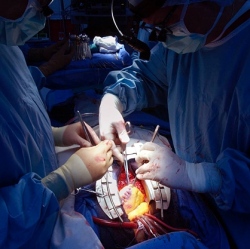
The four-year project is being run by a team of researchers at Genomics England, owned by the UK Department of Health, who will work alongside researchers from several universities across Britain, the Wellcome Trust, the Great Ormond Street Hospital, and the UK’s Medical Research Council.
Some 75,000 volunteers from London, Cambridge, and Newcastle with cancer and rare diseases will offer up their genetic material for sequencing over the next few years. Both their healthy and cancer-affected cells will have their DNA mapped as part of the project, and their close relatives will also have their genomes sequenced for comparison. According to the BBC, the first genome was sequenced on the 30th May this year, and the team has just now passed the 100 genome mark. They aim to have 1,000 genomes sequenced by the end of the year, and if all goes to plan, they will have 10,000 genomes sequenced by the end of 2015.
“Twenty years from now there will be therapies, instead of chemo, that will be a much more targeted approach to treatment,” the head of the Wellcome Trust, Jeremy Farrer, told the press. “Understanding humanity’s genetic code is not only going to be fundamental to the medicine of the future, it is an essential part of medicine today. In rare congenital disease, in cancer and in infections, genomic insights are already transforming diagnosis and treatment.”
